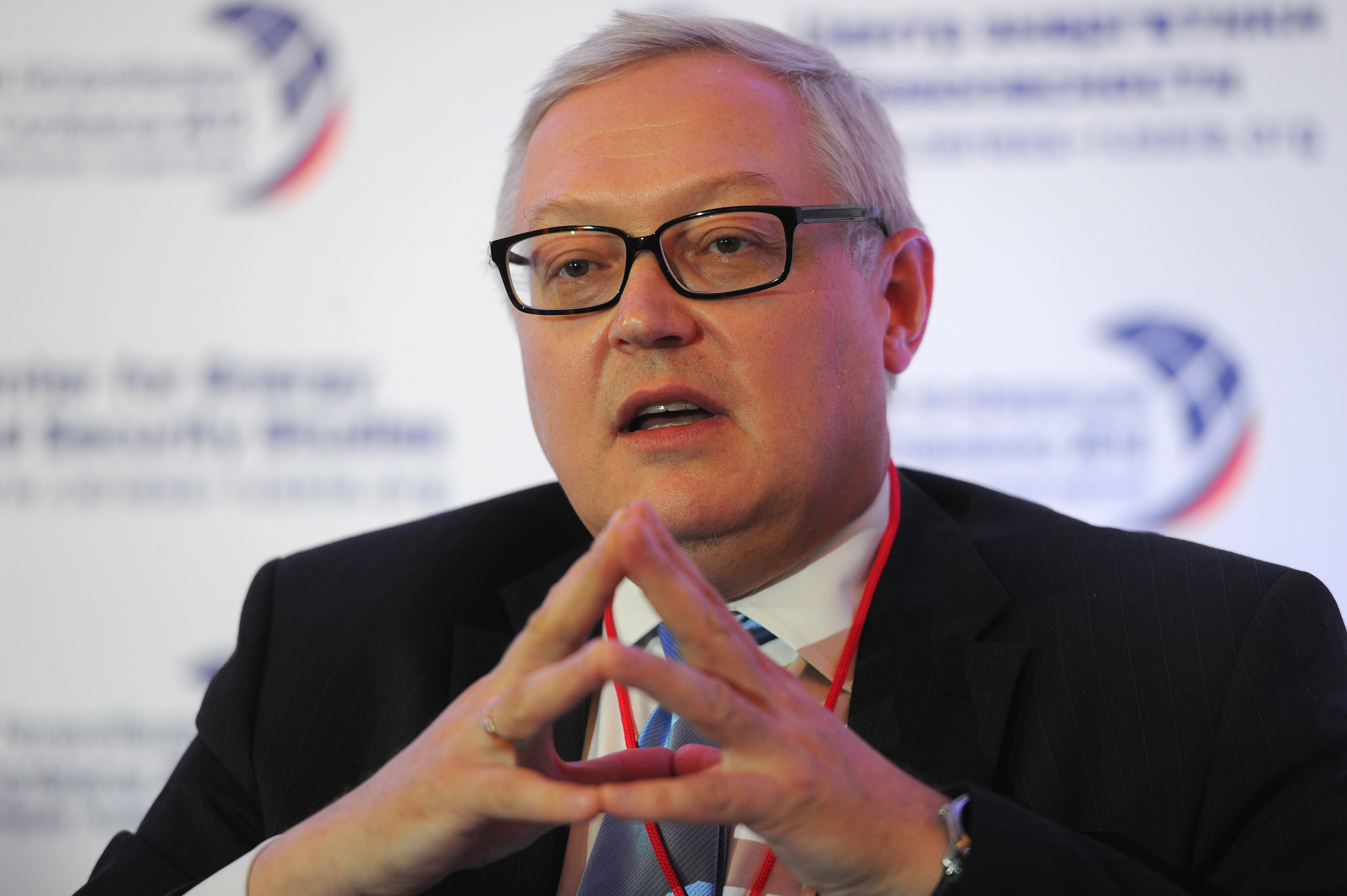ID :
348686
Fri, 11/21/2014 - 09:07
Auther :
Shortlink :
https://oananews.org//node/348686
The shortlink copeid
Deal over Iran nuclear issue hard without new political impetus — Ryabkov

VIENNA, November 20. /TASS/. It would be extremely hard to achieve an agreement between Iran and the six international negotiators on Tehran’s nuclear program (P5+1) without a new political impetus, Russian Deputy Foreign Minister Sergey Ryabkov said Thursday.
“The atmosphere at the talks is very tense, time is running out. Meetings in different formats take place continuously. Probably, in order to solve problems that arise during the talks, delegations will need to get additional instructions [from capitals] and evaluate the situation,” Ryabkov said.
“There is seldom such an opportunity as now. It is a very responsible moment, missing it would be a big mistake with difficult consequences,” he warned.
“No one is yet speaking of any extension [of the talks],” Ryabkov said.
Iran says it needs nuclear power to generate electricity, but Western powers led by the United States claim Iran’s eventual aim is to create nuclear weapons.
P5+1 is the five permanent members of the UN Security Council - the United States, Russia, China, the United Kingdom, and France plus Germany.
Asked whether a new intermediate document could be adopted, Ryabkov said: “An intermediate document of any type also requires coordination, and as the problems are the same, be it a permanent document or an intermediate one, it is absolutely not clear how theoretically even an intermediate document may be coordinated at the last moment.”
“In this lies the key concern, at least, on our part,” the diplomat said. “We are calling on everyone to put aside secondary reasons and think what needs to be done now to adopt political decisions as vital as air.”
“There is no certainty that if everyone sticks to what has been implemented until now, this puzzle will be pieced together,” Ryabkov told journalists.
“Without a new impetus, it would be extremely hard to achieve a result,” he said.
Asked by TASS whether it means that the sides need to seriously move their negotiating positions in order to reach agreements, the diplomat answered in the affirmative.
Ryabkov also commented on the Iranian side’s statements that Tehran is awaiting decisions from its partners in talks. “He who firmly stands his ground, usually says the result depends on the other side,” the deputy foreign minister said.
A plan of joint actions designed for a year that underlay the current negotiating process was agreed by Iran and the six international negotiators in Geneva on November 24, 2013. It in particular envisioned that Iran will get rid of half of accumulated uranium enriched to 20 percent and will dilute the second half to the 5-percent mark.
Besides, Tehran should stop enrichment of uranium to more than 5 percent, and halt work on enrichment enterprises in Natanz, Fordow and at the heavy-water reactor site in Arak.
In turn, the P5+1 members pledged not to impose new restrictions on export of Iranian oil, new sanctions and lift restrictions on exports of oil products and precious metals, as well as unfreeze part of Tehran’s foreign assets.
Implementation of agreements designed for six months started January 20, and the sides decided to draft a final agreement over the period. Over the six months, Iran complied with its commitments in full and had the sanctions regime against it eased.
But the sides failed to agree the document by July 20, and decided to shift the end date to November 24 - the provisional action plan's deadline. Iran committed itself to convert all 20-percent enriched uranium left to nuclear fuel.
On its part, the six international negotiators agreed to continue their policy not to use previously agreed sanctions against Iran and grant Tehran access to $2.8 billion out of its assets arrested abroad. The funds will be provided in several tranches.
Read more





